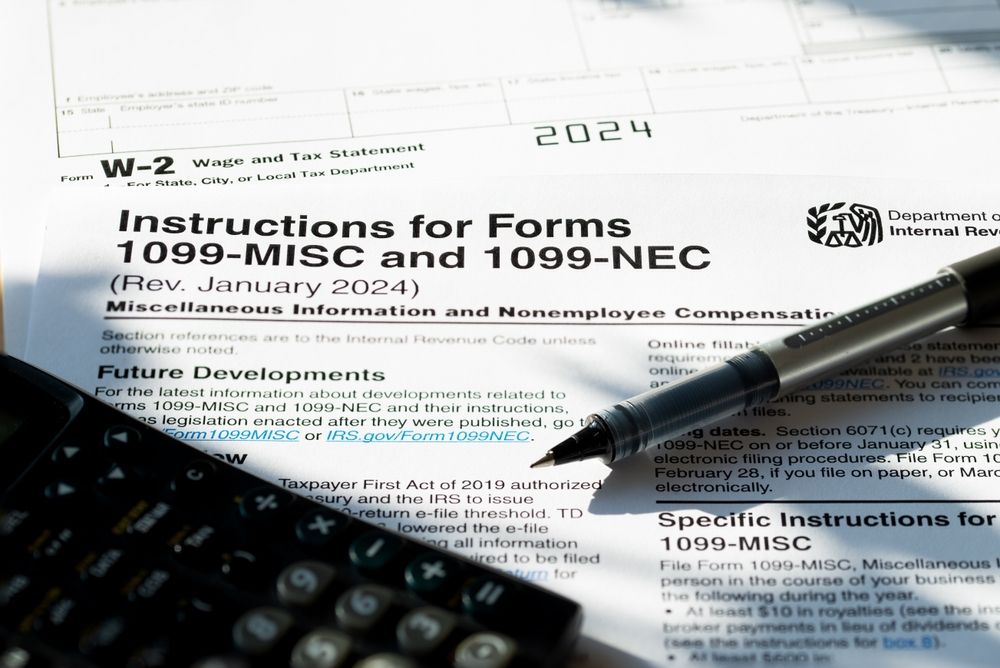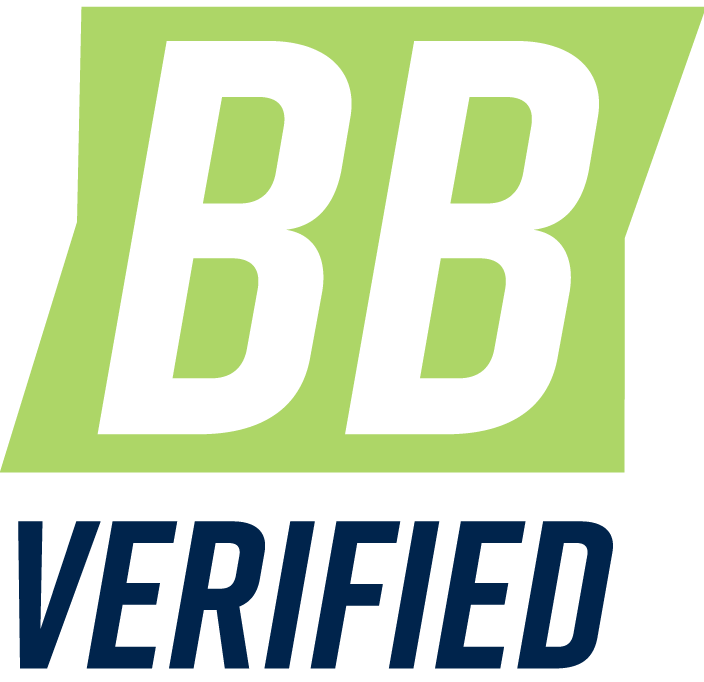Do S Corps Need to File 1099s? A Complete Guide to S Corp Tax Requirements
Written by: Better Buyer
If you own an S Corporation, you may be wondering about your tax reporting responsibilities, particularly when it comes to filing 1099 forms for contractors and vendors. Many business owners are unsure whether S Corps are required to issue 1099s, and the answer can depend on various factors.
And while S Corps don’t typically receive 1099 forms, they may need to issue them in certain circumstances. Understanding when and why 1099s are necessary is key to staying compliant with IRS regulations and avoiding penalties.

What is an S Corp?
An S Corporation (S Corp) is a type of corporation that allows business owners to pass income, losses, deductions, and credits through to their personal tax returns. This structure helps avoid double taxation while offering liability protection. However, tax compliance for S Corps comes with its own complexities, particularly when it comes to handling 1099 forms.
What is a 1099?
A 1099 form is a tax document used to report income paid to individuals or businesses that aren’t employees. Typically, businesses issue a 1099 to contractors, freelancers, or vendors who have been paid $600 or more in a given tax year. The IRS requires these forms to verify that income earned outside of traditional employment is properly reported for tax purposes.
For businesses, issuing a 1099 helps document payments made for services, and for recipients, it serves as a record of income they’ll need to report when filing taxes.
What Are the Different Types of 1099s?
The IRS has several types of 1099 forms, each used to report different kinds of income earned outside of traditional wages. Each form is used to confirm that income earned outside of regular employment is accurately reported to the IRS.
1099-NEC (Nonemployee Compensation)
This form is the most relevant for S Corps and is used to report payments of $600 or more made to independent contractors, freelancers, or other non-employees for services provided. If your S Corporation hires contractors, you’ll need to issue a 1099-NEC to report those payments to the IRS.
1099-MISC (Miscellaneous Income)
The 1099-MISC is another common form and covers a range of other payments, such as rent, legal settlements, and prizes. While it used to report contractor payments before the 1099-NEC was introduced, it’s now primarily for miscellaneous payments that don’t fall under nonemployee compensation.
1099-INT (Interest Income)
This form reports interest income earned over $10 from banks or other financial institutions. If your S Corp earns interest on investments or savings, you may receive a 1099-INT.
1099-DIV (Dividends and Distributions)
Used to report dividends and capital gains distributions from investments, the 1099-DIV is relevant if your S Corp owns shares in other companies or pays dividends to shareholders.

Do S Corps Get 1099s?
S Corporations are generally exempt from receiving 1099-NEC forms. Businesses are not required to issue 1099s to corporations, including S Corps, when paying them for services. This exemption applies because corporations operate under different tax rules than sole proprietors, partnerships, or freelancers.
However, certain industries, such as legal services, are exceptions. Payments made to law firms, even if incorporated, may still require a 1099. This exception highlights the importance of understanding the specific rules surrounding 1099 forms for S Corps.
When Do S Corps Issue 1099s?
While S Corps rarely receive 1099s, they must issue 1099-NEC forms if they pay independent contractors or unincorporated vendors $600 or more for services rendered during the tax year. This applies to payments made to individuals or businesses that are not incorporated, such as freelancers or consultants.
To issue a 1099-NEC, the S Corp must first collect a W-9 form from the contractor, which includes their Taxpayer Identification Number (TIN) and contact information. The deadline to send the 1099-NEC to the contractor and the IRS is January 31 each year.
How to File a 1099
Filing a 1099 is an essential part of tax compliance if your business, including an S Corporation, pays at or above the $600 threshold to contractors, freelancers, or other non-employees during the tax year.
Before completing the 1099, you'll need specific details for each contractor or vendor, including the contractor’s full name, address, and Taxpayer Identification Number (TIN), which can be their Social Security Number (SSN) or Employer Identification Number (EIN). You'll also need to know the total amount you paid them during the year. This information is typically collected using IRS Form W-9, which you should request from contractors before issuing payments.
Be sure to also include your business's name, address, and EIN, as well as the contractor's information and the amount paid for their services. If you're filing a 1099-NEC, enter the payment amount in Box 1 for nonemployee compensation. After completing the form, it must be submitted to the IRS. This can be done electronically using the IRS’s FIRE system, or by mail, but note that you’ll need to use official IRS forms, as printed or downloaded versions won’t be accepted.
In addition to filing with the IRS, you’re required to provide a copy of the 1099 to the contractor. This should be done by January 31st of the following year so that they can accurately report their income. The filing deadline with the IRS is also January 31st, but if you are filing a 1099-MISC for other types of payments (like rent or royalties), the deadline is February 28th for paper filing or March 31st if filing electronically.
Why This Matters for S Corp Owners
Failing to issue 1099s when required can result in costly penalties and increased IRS scrutiny. The IRS imposes fines for late or incorrect filings, ranging from $50 to $290 per form, depending on how late the form is submitted, with the highest penalties applying after August 1st. If the IRS determines that you intentionally failed to file, the penalty increases to $580 per form or more. Keeping detailed records of payments to contractors throughout the year is essential to avoid these fines.
How is a 1099 Different from a W-9?
A 1099 and a W-9 serve different purposes in the tax reporting process. A W-9 is a form that businesses use to collect important information from contractors, freelancers, or vendors. It provides the contractor's Taxpayer Identification Number (TIN), which can be their Social Security Number (SSN) or Employer Identification Number (EIN), as well as their legal name and address.

In contrast, a 1099 is the form the business submits to the IRS and the contractor at the end of the tax year, reporting how much was paid for services. Specifically, the 1099-NEC is used to report nonemployee compensation of $600 or more. While the W-9 gathers information, the 1099 reports actual income to both the contractor and the IRS, ensuring proper tax compliance for both parties.
When to Hire a Tax Professional
Hiring a tax professional is often a smart move when managing complex tax obligations, especially for S Corporation owners. Working with a tax professional who specializes in S Corp tax requirements can simplify the process and prevent costly errors. You should consider hiring a tax expert if you're uncertain about filing requirements, such as issuing 1099s, or if you have multiple contractors, deductions, or revenue streams. Additionally, if you’re unsure if you’ve maximized your allowable deductions, such as for office expenses or equipment purchases.
Furthermore, if your business is undergoing growth, facing audits, or dealing with complicated deductions, a tax professional can help optimize your tax strategy. They can provide valuable insights into tax planning, helping you save money and take advantage of available tax benefits. By staying on top of changes in tax laws and requirements, they also reduce the burden on you, allowing you to focus on running your business. In short, hiring a tax professional is most effective when your tax situation becomes too complex to manage on your own, or when you're seeking to ensure full compliance while maximizing potential savings.
The Bottom Line
While S Corps typically don’t receive 1099s, they are required to issue them to contractors and unincorporated vendors who provide services totaling $600 or more. Properly managing 1099 filings not only keeps your business in good standing but also helps avoid hefty penalties that can arise from missed deadlines or incorrect filings.
For S Corp owners who are uncertain about their tax obligations or have complex financial situations, working with a tax professional can offer peace of mind. They can ensure compliance, optimize deductions, and streamline your tax strategy.
For expert guidance, visit our directory to find accountants or tax preparers who specialize in S Corp compliance and tax filings. Whether you’re navigating the complexities of hiring contractors, optimizing your tax strategy, or ensuring compliance with IRS regulations, the right accountant can make a significant difference in streamlining your financial processes.
Discover
excellent
local
businesses!
Our unique content—articles, ratings, reviews, and videos—help consumers make better purchasing decisions while promoting companies striving to provide customer service excellence.
| Recently Added |
|---|
| Accounting |
| Chiropractors |
| HVAC |
| Moving |
| Physical Therapy |
| Plumbing |
| Windows and Doors |
Is
your
business
in our
directory?
Update your business information to become more visible in our directory. Your lead form will also be activated.
Find your company >






